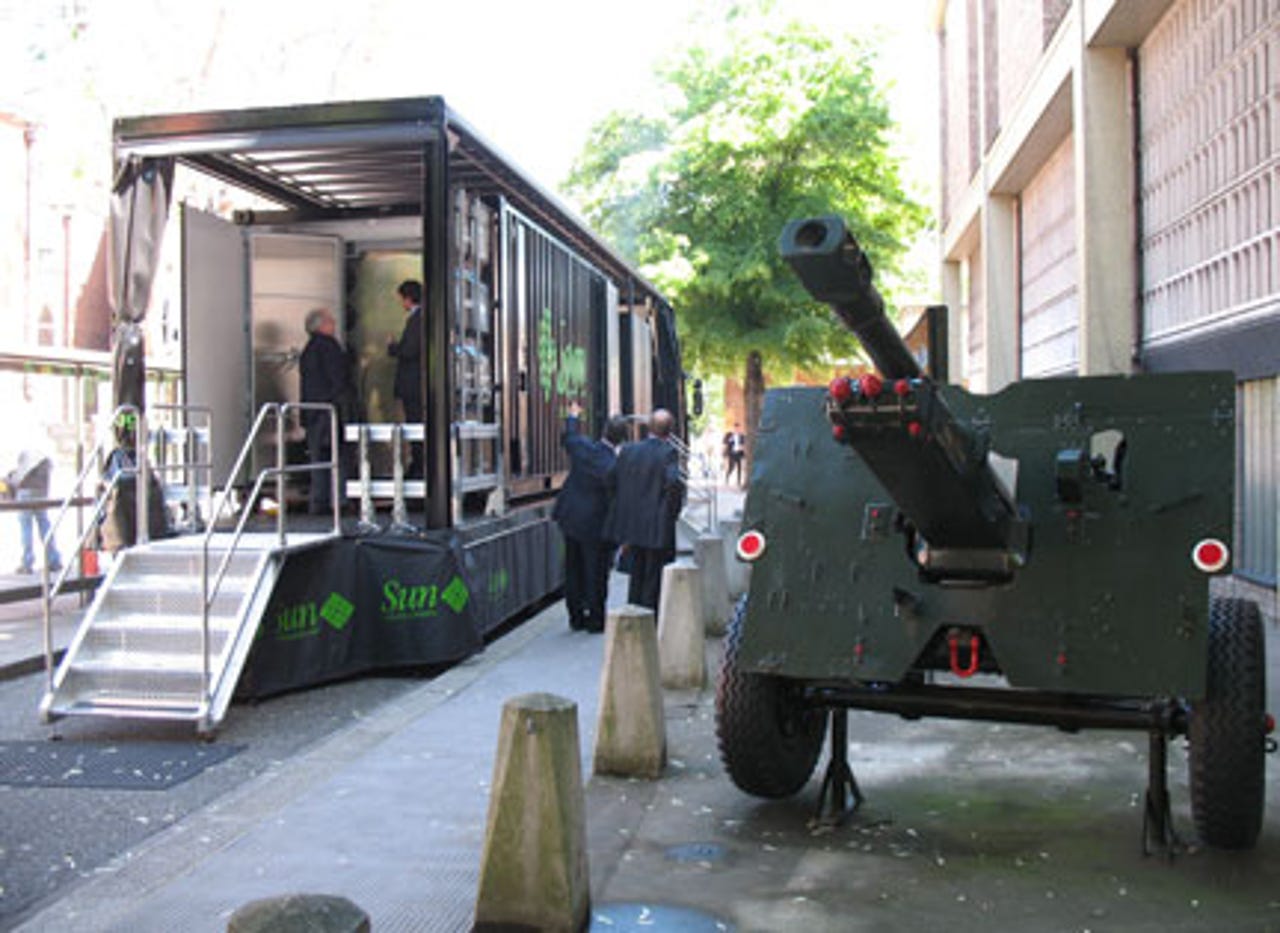Photos: Data centre in a shipping container


On Friday Sun invited ZDNet.co.uk to an army museum in London to see what it is calling the world's first "virtualised data centre" — basically a data centre housed in a standard 20-foot shipping container. The company is referring to it as "virtualised" because, like a virtualised application, it can be moved around independently of any infrastructure.
Sun claims that the facility is 20 percent more energy efficient than a standard data centre and takes a tenth of the time to deploy. At €500k (£343k) without the servers, switches and so on, it is also significantly cheaper than a bricks-and-mortar data centre. Sun is also offering short-term leases of the box.
Rather than having "Sun" emblazoned across its side, the final product will be white and as anonymous as most shipping containers. Representatives of the company claimed that some potential customers have requested "rust-ised" containers to make them even less attractive to potential data thieves.
As for what goes inside, the data centre is fitted with standard 19-inch racks, which Sun claims can be more tightly packed than is possible in a traditional data centre. A slider mechanism allows the racks to be pulled into the extremely narrow service aisle. Unsurprisingly Sun would prefer its own equipment to be installed, but non-Sun servers can also be fitted. Sun representatives hinted that installing their equipment could lead to a discount on the box.
The data centre has space for 500 CPUs and supported ambient temperatures range from -22ºC to 55ºC. A fully configured setup will weigh in the region of nine tons, and the included shock mounts will allow a drop of up to six inches without damage to the equipment inside.
In line with its green goals Sun says it will, when needed, take back "the whole box and all its contents" for recycling.
Sun is claiming only one definite customer for the facility: Stanford University, which picked one up for the high-performance needs of its Linear Accelerator Center earlier this year. On Friday the storage giant pointed to interest from an unidentified global airline and an international telecommunications company.
The portability and convenience of the data centre also makes it ideal for the oil and gas industries, says Sun, as it can be put where the fossil fuel is discovered. The same goes for disaster relief, as a box could be shipped in to revive a metropolitan area's fallen communications. But Sun sees the largest segment of its market being communications companies or application service providers looking to increment their capacity in a manageable way.